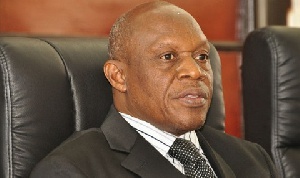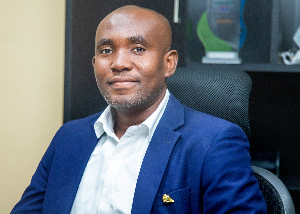Justice William Atuguba’s judgment in the case of the two ex-Guantanamo Bay inmates, Mahmud Umar Muhammad Bin Atef and Khalid Muhammad Salih Al-Dhuby, who were brought into Ghana in January 2016, is very insightful and must be taken into consideration, Abraham Amaliba, a private legal practitioner and Member of the National Democratic Congress (NDC), has said.
According to him, Justice Atuguba, in giving a dissenting judgement in the 6-1 ruling by the Supreme Court on the constitutionality of the decision to host the two former detainees of the Guantanamo Bay in Ghana without recourse to parliament, indicated the President was empowered to take such unilateral action.
It will be recalled that two plaintiffs, Margaret Bamful and Henry Nana Boakye, sued the Attorney General and Minister of Justice as well as the Minister of the Interior in 2016, accusing government of illegally bringing in the two former Gitmo detainees without recourse to the laws of the land.
The two plaintiffs, therefore, sought a true and proper interpretation of Article 75 of the 1992 Constitution of Ghana, arguing that Mr Mahama as President acted unconstitutionally by agreeing to the transfer of Mahmud Umar Muhammad Bin Atef and Khalid Muhammad Salih Al-Dhuby without recourse to Parliament.
But speaking on this development on TV3’s New Day on Saturday June 24, Mr Amaliba said: “Once the Supreme Court has spoken with a 6 to 1 decision, we cannot but agree that that is the position of the law as at today going forward.
“But we cannot just leave it to that way. I have had the opportunity of listening to the dissenting view of Justice Atuguba and for me it is insightful.
“He sought to distinguish between Article 75 and 83, 84.
“…When you look at the argument you will notice that the Attorney General has consistently indicated that the framers of the constitution in Article 75 did not contemplate this type of arrangement [Gitmo 2] to be part of those that should seek parliamentary approval, they did not contemplate that arrangement such as this that are so critical should be a subject matter for Article 75.
“He also sought to say that in most jurisdictions the president is given or has some presidential directive powers and does not need to seek parliamentary approval all the time.
“I am saying that one day we may have to resort to this dissenting opinion because it will help us going forward.”
General News of Saturday, 24 June 2017
Source: classfmonline.com
Gitmo 2 ruling: Atuguba’s ruling ‘insightful’ – Amaliba
Entertainment












